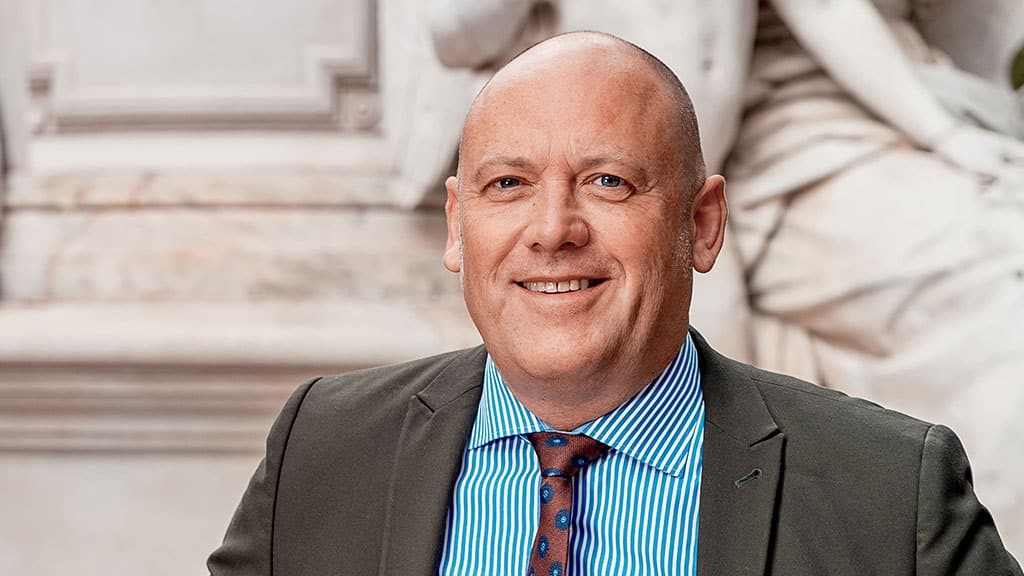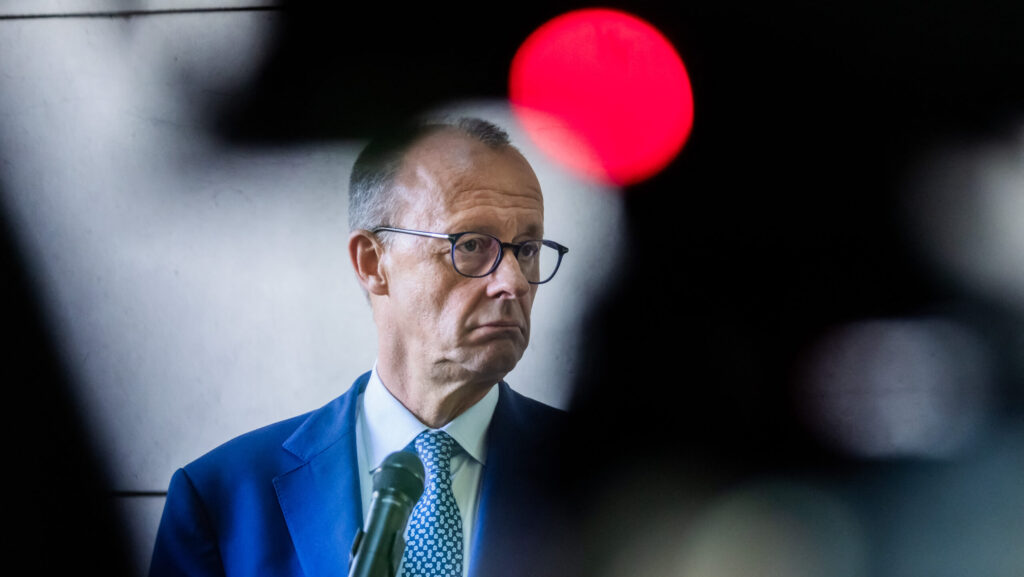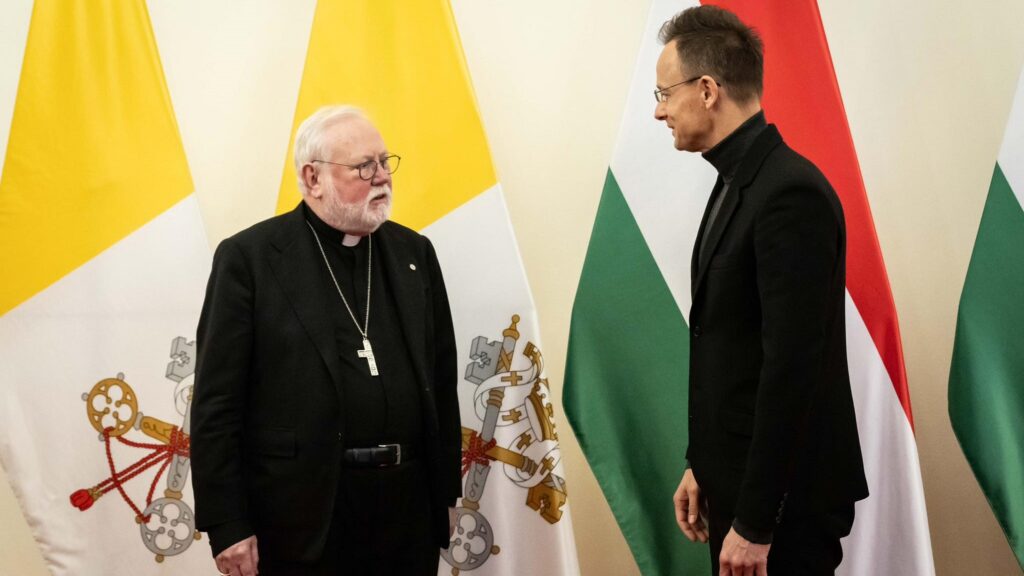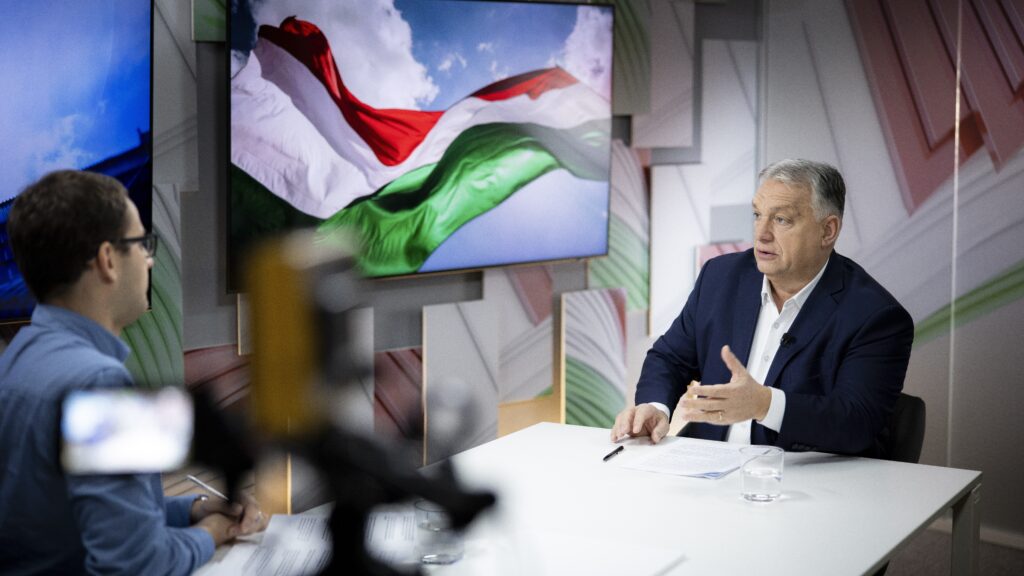Joachim Paul has been MP for Rhineland-Palatinate since 2016 and spokesman for education and digitalization. He was a member of the AfD’s federal executive committee from 2019 to 2022. He has been supporting German minorities in Central and Eastern Europe for many years and writes regularly for the magazine Freilich (Austria) and the weekly Junge Freiheit (Berlin). He recently shared his insights into the success of the AfD, the Russo–Ukrainian war, the cordon sanitaire against his party, and more in an exclusive interview with Hungarian Conservative.
***
In the European elections in June the AfD managed to become the second force in Germany. In recent months, it has also won one regional election and has come second in the other two. What has changed in Germany for AfD to experience such a rise?
The success results from the mismanagement of the current government parties, but also the previous policies under Angela Merkel and the then ruling CDU (Christian Democrats). Issues such as migration have remained unresolved for years. The ruling class simply has no interest in addressing the issue of migration. In addition, there is a devastating economic and energy policy that results from green fantasies. We are currently at the bottom of the European scale, the de-industrialization trend is continuing, unemployment and inflation are soaring. And currently, citizens are looking for a political alternative. This is us from the AfD.
Do you know where these new voters come from, which parties they used to vote for?
AfD voters come from all other parties, but especially from the formerly conservative CDU. But many voters also come from the former workers’ party SPD (Social Democrats), as today’s workers feel represented more by the AfD and no longer by the SPD. And the AfD was also able to bring non-voters back to the ballot box. One can therefore say that the AfD is the new people’s party.
Why do you think there is a difference between AfD votes from West and East Germany?
In East Germany, the area of the former DDR (German Democratic Republic), people react very sensitively to all attempts to enforce authoritarian and state measures. People are influenced by their experiences in the former socialist dictatorship and are therefore very critical. In addition, these are structurally weak areas that have high unemployment. That is why the citizens of Eastern Germany cannot understand why they are not receiving more support, but legal and even illegal migrants, for example, receive countless social transfer benefits.
Insecurity is a pervasive sentiment in Germany an in the rest of Western Europe, something that politicians and the mainstream media seem to have turned a blind eye on. The years are passing, and the situation is getting worse; do you think that even if it is late, it is still possible to reverse these negative tendencies?
There is always a chance. It just needs a shake-up in politics. We have to say goodbye to letting millions of foreigners into Germany and paying these newcomers a lot of money. There must also be other economic decisions. Due to the government’s climate policy, the economy is increasingly following planned economy, i.e. socialist, guidelines. But the economic framework conditions must move back towards more competition and less state intervention. History shows that if there is a will, there is a way.
AfD spearheaded the creation of a new EP party group, Sovereign Nations. Why did the AfD think it was necessary to establish this new formation?
Unfortunately, the patriotic, the right-wing and conservative parties in the European Parliament do not yet speak with one voice. That is very unfortunate. The political left, in contrast, is also very diverse, but works closely together. We should take this as an example. If the three currently existing groups on the right were to merge, a new group would be almost as strong as the EPP. There would be a centre-right predominance in the European Parliament. But as long as a single faction is not possible, you have to work as part of a smaller unit and also use the resources available to a faction. These resources are not available to individual party representatives. That is why it is always wiser to form a smaller parliamentary group with like-minded people.
What is your position on the Russian invasion of Ukraine? Some media have branded the AfD as ‘Kremlin’s party’.
This is the nonsense spread by the mainstream media. The AfD advocates for German, not Russian or US interests. There is a consensus within the AfD that this is a Russian war of aggression. That is certain without a doubt. But demanding that Germany not supply weapons to Ukraine or start talks are already seen in Germany as the Russian position. That is a one-sided view. The AfD is unreservedly committed to a quick end of the war. And that can only be achieved at the negotiating table.
In Germany there is something of a cordon sanitaire from the other parties against the AfD. Do you think it can be broken? The CDU has repeatedly said that they would never ally themselves with you.
We already know the cordon sanitaire from other countries such as Belgium or France. At the federal level, cooperation can still be prevented in Germany. But this so-called firewall is already crumbling at the local level and at some point, it will at the level of the single federal states, too. In addition, the citizens’ desire for a centre-right government is great. If the CDU is not careful, at some point in the future it will suffer the fate of the Italian Christian Democrats, who went from being a 40 per cent party to a small splinter party. And if the economy gets increasingly worse, as predicted, the AfD’s election results are likely to become even stronger. The cordon sanitaire will therefore not survive in the long term.
Related articles:








